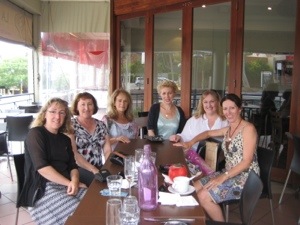Yesterday I had the pleasure of speaking at the Writer’s Unleashed (aka Sutherland Shire Writers) Festival about Rural Fiction. Although the audience was small it was great to be able to chat about writing and to share what I’ve learnt with others.
Also of interest was the session on What Publishers Want, where a panel of three publishers shared what they are looking for. So today i thought I’d share some of those tips with you …
First up was Emma Rafferty from Pan Macmillan. Emma gave a very detailed talk and here are some of the points she made:
- The bottom line is that publishers want good stories that are well told
- An author who can be turned into a brand
- Someone who has written, or has the potential to write, multiple books
- A wide potential market – a book readers are willing to pay for and feel like they got their money’s worth
- An author who has the ability to market and promote their book
- Publishers are starting to approach successful indie digital authors to publish their works in print (a la 50 Shades)
- New Adult is an increasingly popular genre
- Her advice to authors submitting to the slush pile is to – follow the submission guidelines, give your cover letter a commercial flavour, a strong synopsis, a well-edited three chapters with a strong voice and evidence of a strong plot, a full bio
Beverley Cousins from Random House followed up with this:
- Putting “what a publisher wants” into words is like asking “how long is a piece of strain?” It changes throughout the year depending on what she already has on her list.
- Clever plots with an identifiable hook
- although crime fiction is a popular genre in Australia, books by australian crime writers don’t sell well
- Beverley is currently looking for historicals
- Writers need to realise publishing is business and treat it as one – don’t say “I write as a hobby”.
- She advises writers to make sure they are clear about the genre and type of book in their submission – be clear where our book fits in
Roberta Ivers from Simon and Schuster, finished up with this advice:
- Do some research and approach a publisher who publishes the books you like or books that are similar to yours
- Write a great story
- S and S specialises in popular women’s fiction and narrative non-fiction but are not currently taking unsolicited submissions
- New Adult is the next big thing
- She likes to publish debut authors
Overall it was a very interesting panel. The main point that came through is that publishers are looking for well written, tightly edited stories from authors who understand how the business works. It all comes down to writing what you love in an authentic voice, doing your homework on who to submit to and how to do it and of course having the determination to keep at it.
And maybe a little bit of luck!
Happy writing 🙂

